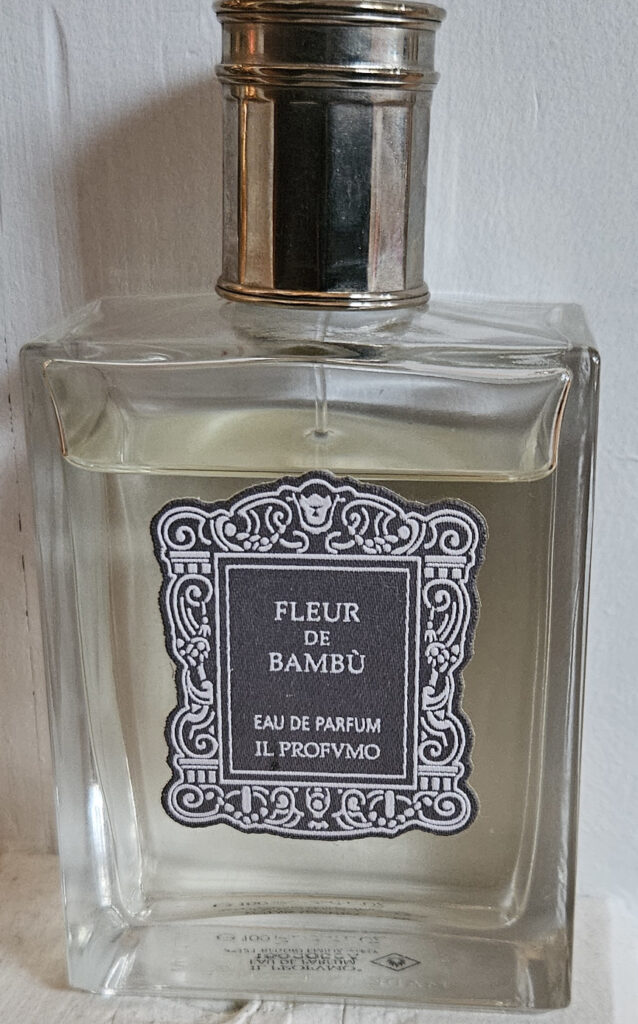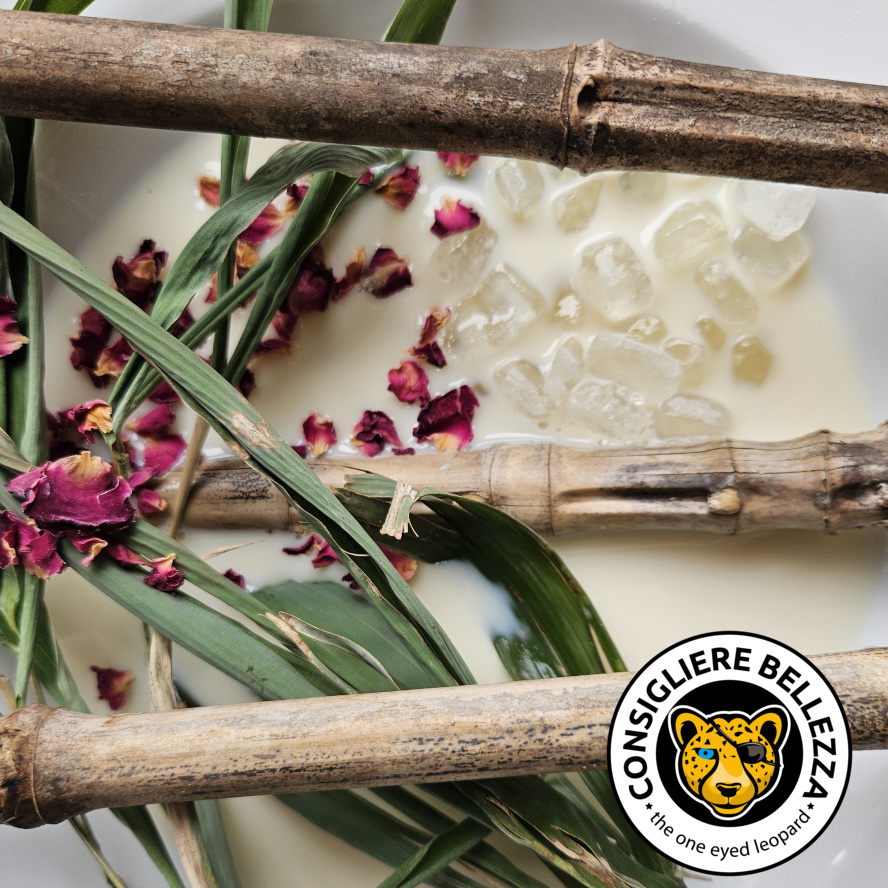“Fleur de Bambu” is a very elegant scent. It has a watery basis, capturing perfectly well the Asian landscape of rice fields, with giant grass moving softly in the wind. The perfume becomes sweet, and milky, and powdery at the same time.
It was created in 2011 by the founder of the house of IL PARFUMO, Silvana Casoli. The IL PARFUMO website lists 3 main scent notes for “Fleur de Bambu”: tea flowers, bamboo and lotus.
The sweet intoxicating scent of the fragrance comes through the bamboo flowers, blooming only every 48 years. Bamboo seems to be a much more special plant than expected, when looking at the rather plain giant grass. Bamboo in general as a species bloom only once or twice in 100 years, and afterwards it dies. All bamboo species bloom within the same 10 years. Probably few of us have ever smelt a real bamboo flower. For that reason, it seems best to trust in Silvana Casoli when she conserved the scent for us.
The longer time goes on, the more the sweetness intensifies, but always on a watery basis. The picture of a lotus flower, or a waterlily, is very real. The perfume smells like the waterlily flower looks before one’s inner eye: symmetric, radiant, beautiful, and surrounded by water.
Lotus is also a scent note that does not come natural to most people of the Western hemisphere. Checking it online, the smell is described as heavy, sweet, and beguiling – very similar to the waterlily.
Lotus and waterlily also look much the same, with the slight difference of the lotus flower lying on the water surface, whilst the waterlily stands above the surface.
Tea flowers I cannot distinguish. Plenty of flowers can be dried and drunk as tea – the selection is too huge for me to pin it down to one kind of tea flower.
The scent note combination of “Fleur de Bambu” is special, unlike other perfumes that also smell wonderful, but where variations of the same are more often to be found.
The whole impression of the perfume is light, exotic, effortless and very feminine.
The colours of the perfume are white and soft greenish/blue.

Silvana Casoli’s dream to start her own successful perfume line became true in 1997 and since then the brand IL PROFUMO stayed close to its origins. The offices are in Reggio Emilia, 50 km from Bologna in the region Emilia Romagna in the north of Italy. Before becoming her own boss, Silvana Casoli seems to have worked in the cosmetics industry. It is refreshing not to know more – probably she worked hard for a long time and then – with capability and luck – was able to realize her dream. Writing about perfumers, all those detailed vocation stories become a bit tiring. To have had a dream and made it true is the best story of all, something most people do not manage. She did it.
Silvana Casoli has extensive knowledge of science, aromatherapy and botany, as one can read on the IL PROFUMO’s website. The first perfume, “Chocolat” became an international renowned scent. She kept the company private for 15 years before looking for partners. By then she had 20 employees.
IL PROFUMO is today owned by the Italian brand DISPAR, before having been 5 years with the Valmont Group. The acquisition by the Valmont Group in 2012 was widely published, the transition to DISPAR in 2019 not so. The DISPAR website does proudly name ownership of IL PROFUMO.
Silvana Casoli stayed with her brand as a “nose” to this day, although the lates fragrance “Ylang d’Or” was created by Michele Marin.
There is not much more to say – the fragrance “Fleur de Bambu” is one of the most elegant and feminine I know. It is exotic in a refined way, reminding me of Asian porcelain, minimalistic but perfect.
Whilst it is difficult and a matter of constant trying to come to a relaxed and calm state of mind through meditation or yoga, Silvana Casoli brought the feeling into her perfume. “Fleur de Bambu” is unmoved by today’s hectic and cares – what is happening is happening. For the world our everyday problems are not important. They are only like the rustling of leaves in the wind.

